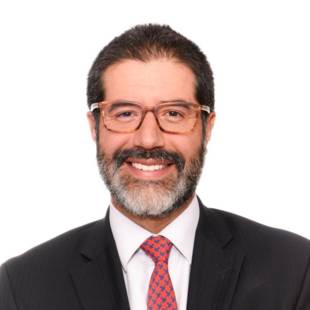
Authors
The Superintendence of Companies (the “SoC”) has finalized the pedagogical stage in relation to the supervision of the implementation of the Ethics and Business Transparency Programs (“PTEE”) and the Self-Control and Risk Management of Money Laundering and Financing of Terrorism Systems (“SAGRILAFT”). The information requests and corrective or informative visits, which were carried out between 2020 and the first half of 2021, have now become sanctions. In the last year, several companies have been sanctioned for total or partial non-compliance with the obligation to implement the SAGRILAFT and the PTEE. It is important to remember that numeral 3° of Article 86 of Law 222 of 1995, granted the SoC the function of imposing sanctions or fines, successive or not, up to two hundred legal monthly minimum wages in force (“200 SMLMV”) (equivalent to approximately USD 47,600), whichever the case may be, to those entities who fail to comply with its orders, the law or the bylaws. The aforementioned rule is applicable to non-compliance of the instructions issued by the SoC regarding PTEE and SAGRILAFT, by means of External Circular 100-000011 of August 9, 2021 (“PTEE Supervision Circular”) and External Circular 100-000016 of December 24, 2020 (“SAGRILAFT Supervision Circular”), respectively. Regarding the implementation of the PTEE, in 2021 the SoC imposed sanctions on approximately 6 companies that had not adopted the PTEE, several months after the deadline set in the PTEE Supervision Circular. These sanctions amounted to approximately COP $20,000,000 to $43,000,000 (equivalent to approximately USD 4,700 to USD 10,200). However, SoC pointed out that recidivism or other infringement in this matter could generate consequences that would entail administrative sanctions of the highest level. In the first half of the year, measures to verify the implementation of the PTEE seem to have intensified. For example, some branches of foreign companies were imposed sanctions ranging from COP$9,000,000 to COP$19,000,000,000 (equivalent to approximately 2,100 to USD 4,500), despite having implemented robust anti-corruption and transnational anti-bribery programs from their central offices/ parent companies, which were based on international treaties such as the United Nations Global Compact and were complying with the OECD requirements. In these cases, sanctions were imposed for infringement of the obligations such as not having informed the SoC of the appointment of the compliance officer, within the term set forth in the PTEE Supervision Circular or the failure to submit the 52 Report. Moreover, regarding SAGRILAFT, the SoC has imposed several sanctions such as the ones just described, related to the infringement of the instructions contained in the SAGRILAFT Supervision Circular, such as: (i) failure to update the old Self-Control and Comprehensive Risk Management System for Money Laundering and Financing of Terrorism (“SARGLAFT”) to current requirements; (ii) failure to register compliance officers to the Online Reporting System (“SIREL”); (iii) late submission of reports to be filed to the UIAF such as the Suspicious Transactions Report (“ROS”) or Absence of Suspicious Transactions Report (“AROS”); (iv) failure to file the 50 Report; and (v) late adoption/approval of the SAGRILAFT. The specific cases of these imposed sanctions are related to companies that, for example, have adopted the SAGRILAFT seven (7) days after the deadline or sometimes there were companies that took up to nineteen (19) months to register their compliance officer in the SIREL. This demonstrates the exhaustive task being carried out by the SoC to ensure that there is not even the slightest infringement with respect to the guidelines established by the circulars for the implementation of the systems. Thus, the importance of implementing the SAGRILAFT and the PTEE is evident, not only for the self-regulation of money laundering, financing of terrorism, financing of the proliferation of weapons of mass destruction, corruption and transnational bribery risks by companies, but also to avoid penalties that may result from total or partial non-compliance. However, keeping track of the changing regulations might get hard for the company, which might deliver in violations of the regulation in the eyes of the SoC, reason why a software like GEORGE might end up being the perfect ally for the companies to have a broad, updated and complete view of its Self-Control and Risk Management Systems. |
For further information see the following link: https://cms.law/en/col/publication/introducing-the-perfect-ally-for-the-compliance-team-of-your-company






